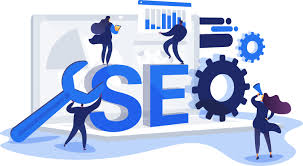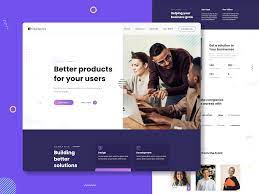In today’s digital age, internet marketing has become an essential tool for businesses, including hotels. With the rise of online travel agencies and review sites, it is more critical than ever for hotels to have a strong online presence. Effective hotel internet marketing can help hotels attract more guests, increase revenue, and enhance their brand image.
One of the most critical aspects of hotel internet marketing is having a well-designed website that is both visually appealing and user-friendly. Your website should be easy to navigate, with clear calls-to-action that encourage visitors to book a room or learn more about your property. It should also be optimized for search engines, ensuring that potential guests can find your hotel when searching for accommodations in your area.
Another key aspect of hotel internet marketing is social media management. Social media platforms such as Facebook, Twitter, and Instagram offer hotels an excellent opportunity to connect with potential guests and promote their brand. Hotels can use social media to showcase their amenities and services, share guest reviews and feedback, and offer special promotions or discounts.
Email marketing is another effective tool for hotel internet marketing. By collecting email addresses from past guests or visitors who have expressed interest in your property, you can send targeted email campaigns promoting special deals or events at your hotel. Email marketing allows you to stay top-of-mind with potential guests and encourage them to book a stay at your property.
Paid advertising through channels such as Google Ads or Facebook Ads can also be a useful way to reach potential guests online. By targeting specific demographics or geographic areas, hotels can ensure that their ads are seen by the right people at the right time.
Finally, it’s essential for hotels to actively manage their online reputation through review sites such as TripAdvisor or Yelp. Responding promptly and professionally to guest reviews (both positive and negative) shows potential guests that you care about their experience and are committed to providing excellent service.
In conclusion, effective hotel internet marketing is vital for hotels to attract more guests, increase revenue, and enhance their brand image. By having a well-designed website, managing social media accounts, utilizing email marketing, using paid advertising channels, and actively managing their online reputation, hotels can ensure that they are reaching potential guests and standing out in a crowded marketplace.
9 Essential FAQs for Hotel Internet Marketing: Strategies, Tools, and Tips for Success
- How can I optimize my hotel’s website for better search engine rankings?
- What are the best online marketing strategies for hotels?
- How can I increase bookings through digital marketing?
- What are the most effective tools for hotel internet marketing?
- How can I use social media to promote my hotel?
- What are the benefits of email marketing for hotels?
- How do I create an effective content strategy for my hotel’s website?
- How do I measure the success of my digital marketing campaigns?
- What tips and tricks should I use to maximize my return on investment in online advertising?
How can I optimize my hotel’s website for better search engine rankings?
Optimizing your hotel’s website for better search engine rankings is essential for attracting more potential guests to your property. Here are some tips on how to optimize your hotel’s website for search engines:
- Conduct Keyword Research: Start by researching the most relevant keywords and phrases that potential guests are using to find hotels in your area. Use tools like Google Keyword Planner or SEMrush to identify high-volume, low-competition keywords that you can target on your website.
- Optimize Your Website Content: Ensure that your website content includes relevant keywords and phrases in a natural and engaging way. This includes optimizing page titles, meta descriptions, header tags, and image alt tags.
- Improve Your Website Speed: A slow-loading website can negatively impact your search engine rankings. Ensure that your website is optimized for speed by compressing images, minimizing HTTP requests, and leveraging browser caching.
- Utilize Local SEO: As a hotel, local SEO is crucial for attracting guests who are searching for accommodations in your area. Make sure that your website includes location-specific keywords and phrases, such as the name of your city or neighborhood.
- Create Quality Content: Quality content is essential for both engaging potential guests and improving search engine rankings. Create blog posts or other types of content that provide value to visitors and include relevant keywords.
- Optimize Your Website Design: Ensure that your website design is user-friendly and easy to navigate. This includes having clear calls-to-action (such as “Book Now” buttons), intuitive menus, and mobile responsiveness.
- Build Backlinks: Backlinks (links from other websites to yours) are an important factor in search engine rankings. Work on building high-quality backlinks from reputable sources such as travel blogs or local tourism websites.
By implementing these strategies, you can improve your hotel’s search engine rankings and attract more potential guests to your property through organic search traffic.
What are the best online marketing strategies for hotels?
There are several effective online marketing strategies that hotels can use to attract more guests, increase revenue, and enhance their brand image. Here are some of the best strategies:
- Search Engine Optimization (SEO): SEO is the process of optimizing your website to rank higher in search engine results pages (SERPs). By using relevant keywords, creating high-quality content, and optimizing your website’s structure and design, you can improve your hotel’s visibility in search engines like Google.
- Pay-Per-Click (PPC) Advertising: PPC advertising allows hotels to place ads on search engine results pages or social media platforms like Facebook. By targeting specific demographics or geographic areas, hotels can ensure that their ads are seen by the right people at the right time.
- Social Media Marketing: Social media platforms like Facebook, Instagram, and Twitter offer hotels an excellent opportunity to connect with potential guests and promote their brand. Hotels can use social media to showcase their amenities and services, share guest reviews and feedback, and offer special promotions or discounts.
- Email Marketing: Email marketing is an effective way for hotels to stay top-of-mind with potential guests by sending targeted email campaigns promoting special deals or events at their property.
- Online Reputation Management: Managing your hotel’s online reputation is critical in today’s digital age. Responding promptly and professionally to guest reviews (both positive and negative) shows potential guests that you care about their experience and are committed to providing excellent service.
- Influencer Marketing: Partnering with influential bloggers or social media personalities can be an effective way for hotels to reach new audiences and promote their brand.
- Content Marketing: Creating high-quality content such as blog posts, videos, or infographics can help establish your hotel as a thought leader in your industry while also attracting potential guests.
By utilizing these online marketing strategies effectively, hotels can increase their visibility online, attract more guests, and ultimately increase revenue and enhance their brand image.
How can I increase bookings through digital marketing?
There are several ways to increase bookings through digital marketing. Here are some effective strategies:
- Optimize your website: Your website is the first impression potential guests have of your hotel. Ensure that it is visually appealing, easy to navigate, and optimized for search engines. Make sure that your website is mobile-friendly as well since many travelers book their accommodations from their mobile devices.
- Use social media: Social media platforms such as Facebook, Instagram, and Twitter offer hotels an excellent opportunity to connect with potential guests and promote their brand. Share high-quality photos and videos of your property’s amenities, events, and local attractions to engage with potential guests.
- Leverage email marketing: Collect email addresses from past guests or visitors who have expressed interest in your property and send targeted email campaigns promoting special deals or events at your hotel. Personalize emails based on the interests of each recipient to increase engagement.
- Use paid advertising: Paid advertising can be a useful way to reach potential guests online. Consider using Google Ads or Facebook Ads to target specific demographics or geographic areas.
- Offer incentives: Providing incentives such as discounts or freebies can encourage potential guests to book a stay at your hotel.
- Partner with influencers: Collaborating with influencers in the travel industry can help increase awareness of your property among their followers.
- Monitor online reviews: Actively managing your online reputation through review sites such as TripAdvisor or Yelp can help build trust with potential guests and encourage them to book a stay at your property.
By implementing these strategies, you can effectively increase bookings through digital marketing and grow your hotel business.
What are the most effective tools for hotel internet marketing?
There are several effective tools for hotel internet marketing that can help hotels attract more guests, increase revenue, and enhance their brand image. Here are some of the most effective tools:
- A well-designed website: A visually appealing and user-friendly website is essential for any hotel’s internet marketing strategy. The website should be optimized for search engines and have clear calls-to-action that encourage visitors to book a room or learn more about the property.
- Social media management: Social media platforms such as Facebook, Twitter, and Instagram offer hotels an excellent opportunity to connect with potential guests and promote their brand. Hotels can use social media to showcase their amenities and services, share guest reviews and feedback, and offer special promotions or discounts.
- Email marketing: Email marketing is an effective tool for hotels to stay top-of-mind with potential guests and encourage them to book a stay at the property. By collecting email addresses from past guests or visitors who have expressed interest in the property, hotels can send targeted email campaigns promoting special deals or events.
- Paid advertising: Paid advertising through channels such as Google Ads or Facebook Ads can be a useful way to reach potential guests online. By targeting specific demographics or geographic areas, hotels can ensure that their ads are seen by the right people at the right time.
- Online reputation management: It’s essential for hotels to actively manage their online reputation through review sites such as TripAdvisor or Yelp. Responding promptly and professionally to guest reviews (both positive and negative) shows potential guests that the hotel cares about their experience and is committed to providing excellent service.
By utilizing these tools effectively, hotels can ensure that they are reaching potential guests online and standing out in a crowded marketplace.
How can I use social media to promote my hotel?
Social media is an excellent tool for promoting your hotel and reaching potential guests. Here are some tips on how to use social media to promote your hotel:
- Choose the right platforms: The first step is to determine which social media platforms your target audience uses most frequently. Facebook, Instagram, and Twitter are popular choices for hotels.
- Share high-quality photos and videos: Sharing high-quality images and videos of your hotel’s amenities, rooms, and location can help attract potential guests. Use professional photography or hire a photographer to capture the best angles of your property.
- Engage with followers: Responding promptly to comments and messages on social media shows that you care about your guests’ experience and are committed to providing excellent service.
- Offer exclusive promotions: Offer special promotions or discounts to followers on social media platforms as a way to reward them for their loyalty.
- Share local attractions: Share information about local attractions or events in the area as a way to showcase the location of your hotel.
- Encourage user-generated content: Encourage guests to share their experiences at your hotel by tagging your hotel’s social media account or using a specific hashtag when posting photos or reviews.
- Collaborate with influencers: Partnering with influencers in the travel industry can help increase visibility for your hotel among their followers.
- Monitor reviews: Keep an eye on reviews posted on social media platforms such as TripAdvisor or Yelp and respond promptly and professionally to any negative feedback.
In conclusion, utilizing social media platforms can be an effective way for hotels to promote themselves and reach potential guests. By sharing high-quality photos and videos, engaging with followers, offering exclusive promotions, sharing local attractions, encouraging user-generated content, collaborating with influencers, and monitoring reviews, hotels can build a strong online presence that attracts more guests and enhances their brand image.
What are the benefits of email marketing for hotels?
Email marketing is an effective tool for hotels to reach out to their customers and promote their services. Here are some of the benefits of email marketing for hotels:
- Direct communication with customers: Email marketing allows hotels to communicate directly with their customers, providing them with relevant information about promotions, events, and other updates.
- Cost-effective: Email marketing is a cost-effective way for hotels to reach out to their customers. It requires minimal investment compared to traditional advertising methods.
- Increased bookings: By sending targeted emails to potential guests, hotels can increase the chances of bookings. Email campaigns can include special offers or promotions that encourage guests to book a stay at the hotel.
- Personalization: Email marketing allows hotels to personalize their messages based on customer preferences and behavior, making the communication more relevant and engaging.
- Brand awareness: Regular email communication with customers can help build brand awareness and loyalty, keeping the hotel top-of-mind when customers are planning their next trip.
- Measurable results: Email marketing provides measurable results through open rates, click-through rates, and conversion rates, allowing hotels to track the effectiveness of their campaigns and make necessary adjustments.
In conclusion, email marketing is a powerful tool for hotels that can help increase bookings, build brand awareness and loyalty, and provide measurable results at a low cost. By utilizing email campaigns effectively, hotels can stay ahead of the competition in a crowded marketplace while providing valuable information and offers to their customers.
How do I create an effective content strategy for my hotel’s website?
Creating an effective content strategy for your hotel’s website is crucial to attract potential guests, increase bookings, and improve your online presence. Here are some steps to help you create a successful content strategy:
- Define Your Target Audience: Before creating any content, it is important to define your target audience. This will help you tailor your content to the needs and interests of your potential guests. Consider factors such as age, gender, income level, interests, and travel habits when defining your target audience.
- Conduct Keyword Research: Keyword research is essential to identify the search terms potential guests use when looking for accommodations in your area. Use tools such as Google AdWords Keyword Planner or SEMrush to find relevant keywords and phrases that you can use in your content.
- Determine Your Content Types: Decide on the types of content you want to create for your website. This can include blog posts, videos, infographics, photo galleries, or virtual tours.
- Develop a Content Calendar: A content calendar helps you plan and organize your content creation efforts over time. It ensures that you are consistently publishing fresh and relevant content that resonates with your target audience.
- Focus on Storytelling: Storytelling is a powerful way to connect with potential guests emotionally and capture their attention. Share stories about the history of your hotel or local attractions that showcase the unique features of your property.
- Optimize for Search Engines: Ensure that all of your content is optimized for search engines by including relevant keywords in titles, meta descriptions, and throughout the body of the text.
- Promote Your Content: Once you have created high-quality content, it’s essential to promote it through social media channels or email marketing campaigns to reach a wider audience and drive traffic back to your website.
By following these steps, you can create an effective content strategy for your hotel’s website that attracts potential guests and increases bookings while improving brand awareness. Remember to monitor your website analytics regularly to track the success of your content strategy and make adjustments as needed.
How do I measure the success of my digital marketing campaigns?
Measuring the success of your digital marketing campaigns is essential to determine whether your efforts are delivering the desired results. Here are some key metrics you should consider when measuring the success of your digital marketing campaigns:
- Website Traffic: One of the most basic metrics to track is website traffic. You can use tools like Google Analytics to monitor how many people are visiting your website and which pages they are viewing.
- Conversion Rate: Conversion rate refers to the percentage of website visitors who take a specific action, such as filling out a form or making a purchase. By tracking conversion rates, you can determine if your website and marketing campaigns are effectively driving leads and sales.
- Cost per Acquisition (CPA): CPA measures how much it costs to acquire a new customer through your digital marketing campaigns. This metric takes into account all of the costs associated with acquiring a new customer, including advertising spend, agency fees, and other expenses.
- Return on Investment (ROI): ROI measures the revenue generated from your digital marketing campaigns compared to the amount spent on those campaigns. By calculating ROI, you can determine whether your marketing efforts are delivering a positive return on investment.
- Engagement Metrics: Engagement metrics measure how users interact with your content on social media platforms or other channels. These metrics include likes, shares, comments, and click-through rates.
- Customer Lifetime Value (CLV): CLV measures how much revenue a customer is likely to generate over their lifetime with your business. By tracking CLV, you can determine if your marketing efforts are effectively driving long-term customer loyalty and repeat business.
In conclusion, measuring the success of your digital marketing campaigns requires tracking multiple metrics across various channels and platforms. By monitoring these metrics regularly and making data-driven decisions based on the insights gained from this analysis, you can continuously improve the effectiveness of your digital marketing efforts and drive better results for your business over time.
What tips and tricks should I use to maximize my return on investment in online advertising?
To maximize your return on investment (ROI) in online advertising, you should consider the following tips and tricks:
- Define your target audience: Before launching an online advertising campaign, it’s essential to identify your target audience. Knowing who you want to reach will help you tailor your ads to their interests and preferences, increasing the likelihood of conversion.
- Choose the right platform: There are many online advertising platforms available, each with its strengths and weaknesses. Consider which platform(s) your target audience is most likely to use and which ones align best with your advertising goals.
- Set clear goals: Before launching an online advertising campaign, establish clear goals for what you hope to achieve. Whether it’s increasing website traffic, generating leads, or boosting sales, having a specific goal in mind will help guide your ad strategy.
- Use compelling visuals and messaging: To capture the attention of potential customers, use eye-catching visuals and messaging that speaks directly to their needs or desires. Make sure that your ads are visually appealing and easy to read.
- Test different ad formats: Experiment with different ad formats such as text-based ads or display ads to see which ones perform best for your business.
- Monitor performance: Regularly monitor the performance of your online advertising campaigns to see what’s working and what’s not. Use analytics tools to track metrics such as click-through rates (CTR), conversions, and cost-per-click (CPC).
- Optimize campaigns: Based on the data collected from monitoring performance, optimize your campaigns by adjusting targeting parameters or ad creatives to improve results.
- Continuously refine strategy: As technology evolves and consumer behavior changes, it’s essential to continuously refine your online advertising strategy to stay ahead of the competition.
By implementing these tips and tricks into your online advertising strategy, you can maximize ROI and achieve greater success in reaching potential customers through digital channels.




